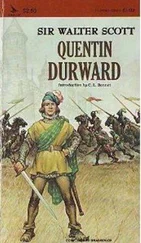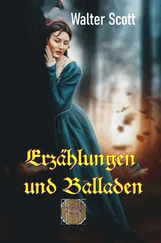Walter Scott - Letters on Demonology and Witchcraft
Здесь есть возможность читать онлайн «Walter Scott - Letters on Demonology and Witchcraft» весь текст электронной книги совершенно бесплатно (целиком полную версию без сокращений). В некоторых случаях можно слушать аудио, скачать через торрент в формате fb2 и присутствует краткое содержание. Жанр: История, на английском языке. Описание произведения, (предисловие) а так же отзывы посетителей доступны на портале библиотеки ЛибКат.
- Название:Letters on Demonology and Witchcraft
- Автор:
- Жанр:
- Год:неизвестен
- ISBN:нет данных
- Рейтинг книги:4 / 5. Голосов: 1
-
Избранное:Добавить в избранное
- Отзывы:
-
Ваша оценка:
- 80
- 1
- 2
- 3
- 4
- 5
Letters on Demonology and Witchcraft: краткое содержание, описание и аннотация
Предлагаем к чтению аннотацию, описание, краткое содержание или предисловие (зависит от того, что написал сам автор книги «Letters on Demonology and Witchcraft»). Если вы не нашли необходимую информацию о книге — напишите в комментариях, мы постараемся отыскать её.
Letters on Demonology and Witchcraft — читать онлайн бесплатно полную книгу (весь текст) целиком
Ниже представлен текст книги, разбитый по страницам. Система сохранения места последней прочитанной страницы, позволяет с удобством читать онлайн бесплатно книгу «Letters on Demonology and Witchcraft», без необходимости каждый раз заново искать на чём Вы остановились. Поставьте закладку, и сможете в любой момент перейти на страницу, на которой закончили чтение.
Интервал:
Закладка:
"As in a conjuror's circle—William found
A mean for our deliverance,—'Turn your cloaks,'
Quoth he, 'for Puck is busy in these oaks;
If ever you at Bosworth would be found,
Then turn your cloaks, for this is fairy ground.'
But ere this witchcraft was performed, we meet
A very man who had no cloven feet.
Though William, still of little faith, has doubt,
'Tis Robin, or some sprite that walks about.
'Strike him,' quoth he, 'and it will turn to air—
Cross yourselves thrice and strike it.'—'Strike that dare,'
Thought I, 'for sure this massy forester,
In strokes will prove the better conjuror.'
But 'twas a gentle keeper, one that knew
Humanity and manners, where they grew,
And rode along so far, till he could say,
'See, yonder Bosworth stands, and this your way.'" [42] [42] Corbett's Poems, p. 191.
In this passage the bishop plainly shows the fairies maintained their influence in William's imagination, since the courteous keeper was mistaken by their associate champion for Puck or Robin Goodfellow. The spells resorted to to get rid of his supposed delusions are alternatively that of turning the cloak—(recommended in visions of the second-sight or similar illusions as a means of obtaining a certainty concerning the being which is before imperfectly seen [43] [43] A common instance is that of a person haunted with a resemblance whose face he cannot see. If he turn his cloak or plaid, he will obtain the full sight which he desires, and may probably find it to be his own fetch, or wraith, or double-ganger.
)—and that of exorcising the spirit with a cudgel; which last, Corbett prudently thinks, ought not to be resorted to unless under an absolute conviction that the exorcist is the stronger party. Chaucer, therefore, could not be serious in averring that the fairy superstitions were obsolete in his day, since they were found current three centuries afterwards.
It is not the less certain that, as knowledge and religion became more widely and brightly displayed over any country, the superstitious fancies of the people sunk gradually in esteem and influence; and in the time of Queen Elizabeth the unceasing labour of many and popular preachers, who declaimed against the "splendid miracles" of the Church of Rome, produced also its natural effect upon the other stock of superstitions. "Certainly," said Reginald Scot, talking of times before his own, "some one knave in a white sheet hath cozened and abused many thousands, specially when Robin Goodfellow kept such a coil in the country. In our childhood our mothers' maids have so terrified us with an ugly devil having horns on his head, fire in his mouth, and a tail at his breech; eyes like a basin, fangs like a dog, claws like a bear, a skin like a negro, and a voice roaring like a lion, whereby we start and are afraid when we hear one cry, Boh! and they have so frayd us with bull-beggars, spirits, witches, urchins, elves, hags, fairies, satyrs, Pans, faunes, sylvans, Kitt-with-the-candlestick, tritons, centaurs, dwarfs, giants, imps, calcars, conjurers, nymphs, changelings, incubus, Robin Goodfellow, the spoorn, the man-in-the-oak, the hellwain, the fire-drake, the puckle, Tom Thumb, Hobgoblin, Tom Tumbler, Boneless, and such other bugbears, that we are afraid of our own shadows, insomuch that some never fear the devil but on a dark night; and then a polled sheep is a perilous beast, and many times is taken for our father's soul, specially in a churchyard, where a right hardy man heretofore durst not to have passed by night but his hair would stand upright. Well, thanks be to God, this wretched and cowardly infidelity, since the preaching of the Gospel, is in part forgotten, and doubtless the rest of these illusions will in a short time, by God's grace, be detected and vanish away." [44] [44] Reginald Scot's "Discovery of Witchcraft," book vii. chap. 15.
It would require a better demonologist than I am to explain the various obsolete superstitions which Reginald Scot has introduced as articles of the old English faith, into the preceding passage. I might indeed say the Phuca is a Celtic superstition, from which the word Pook or Puckle was doubtless derived; and I might conjecture that the man-in-the-oak was the same with the Erl-König of the Germans; and that the hellwain were a kind of wandering spirits, the descendants of a champion named Hellequin, who are introduced into the romance of Richard sans Peur. But most antiquaries will be at fault concerning the spoorn, Kitt-with-the-candlestick, Boneless, and some others. The catalogue, however, serves to show what progress the English have made in two centuries, in forgetting the very names of objects which had been the sources of terror to their ancestors of the Elizabethan age.
Before leaving the subject of fairy superstition in England we may remark that it was of a more playful and gentle, less wild and necromantic character, than that received among the sister people. The amusements of the southern fairies were light and sportive; their resentments were satisfied with pinching or scratching the objects of their displeasure; their peculiar sense of cleanliness rewarded the housewives with the silver token in the shoe; their nicety was extreme concerning any coarseness or negligence which could offend their delicacy; and I cannot discern, except, perhaps, from the insinuations of some scrupulous divines, that they were vassals to or in close alliance with the infernals, as there is too much reason to believe was the case with their North British sisterhood. [45] [45] Dr. Jackson, in his "Treatise on Unbelief," opines for the severe opinion. "Thus are the Fayries, from difference of events ascribed to them, divided into good and bad, when as it is but one and the same malignant fiend that meddles in both; seeking sometimes to be feared, otherwhiles to be loued as God, for the bodily harmes or good turnes supposed to be in his power."—Jackson on Unbelief, p. 178, edit. 1625.
The common nursery story cannot be forgotten, how, shortly after the death of what is called a nice tidy housewife, the Elfin band was shocked to see that a person of different character, with whom the widower had filled his deserted arms, instead of the nicely arranged little loaf of the whitest bread, and a basin of sweet cream, duly placed for their refreshment by the deceased, had substituted a brown loaf and a cobb of herrings. Incensed at such a coarse regale, the elves dragged the peccant housewife out of bed, and pulled her down the wooden stairs by the heels, repeating, at the same time, in scorn of her churlish hospitality—
"Brown bread and herring cobb!
Thy fat sides shall have many a bob!"
But beyond such playful malice they had no desire to extend their resentment.
The constant attendant upon the English Fairy court was the celebrated Puck, or Robin Goodfellow, who to the elves acted in some measure as the jester or clown of the company—(a character then to be found in the establishment of every person of quality)—or to use a more modern comparison, resembled the Pierrot of the pantomime. His jests were of the most simple and at the same time the broadest comic character—to mislead a clown on his path homeward, to disguise himself like a stool, in order to induce an old gossip to commit the egregious mistake of sitting down on the floor when she expected to repose on a chair, were his special enjoyments. If he condescended to do some work for the sleeping family, in which he had some resemblance to the Scottish household spirit called a Brownie, the selfish Puck was far from practising this labour on the disinterested principle of the northern goblin, who, if raiment or food was left in his way and for his use, departed from the family in displeasure. Robin Goodfellow, on the contrary, must have both his food and his rest, as Milton informs us, amid his other notices of country superstitions, in the poem of L'Allegro. And it is to be noticed that he represents these tales of the fairies, told round the cottage hearth, as of a cheerful rather than a serious cast; which illustrates what I have said concerning the milder character of the southern superstitions, as compared with those of the same class in Scotland—the stories of which are for the most part of a frightful and not seldom of a disgusting quality.
Читать дальшеИнтервал:
Закладка:
Похожие книги на «Letters on Demonology and Witchcraft»
Представляем Вашему вниманию похожие книги на «Letters on Demonology and Witchcraft» списком для выбора. Мы отобрали схожую по названию и смыслу литературу в надежде предоставить читателям больше вариантов отыскать новые, интересные, ещё непрочитанные произведения.
Обсуждение, отзывы о книге «Letters on Demonology and Witchcraft» и просто собственные мнения читателей. Оставьте ваши комментарии, напишите, что Вы думаете о произведении, его смысле или главных героях. Укажите что конкретно понравилось, а что нет, и почему Вы так считаете.









